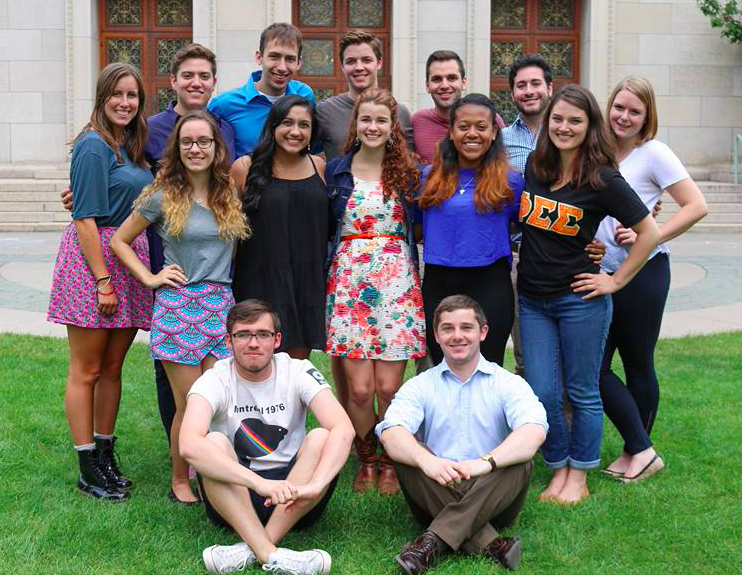A Glimpse Into the Students’ Association Government
Throughout most of my two years at the University of Rochester thus far, I’ve been involved with Students’ Association Government (the formal name for Rochester’s student government body, which is colloquially referred to by students as “SA Government” or ”SA Gov”). During the spring of my freshman year, I served as a member of what was then known as the Projects and Services Committee (known as Campus Services) as the Collegiate Readership Program (CRP) Aide.
In this capacity, I helped manage and secure funding for the continuation of one of my favorite University programs and offerings: free newspapers for students. The CRP provides newspapers (The New York Times, Democrat and Chronicle, and USA TODAY) free for student access at several locations across campus.
Inspired by the genuine possibility of improving campus life, and by the efficiency, energy, and competence displayed by admired older SA leaders, I ran for a sophomore spot on SA Senate during the spring election season. Campaigning was an exhilarating experience that proved to be worthwhile in the best way—I secured enough votes to earn a sophomore senate spot, which translated into my second year of involvement in SA Government.
Before I detail my personal experience as a member of SA Government any further, I’ll explain the structure of SA Government a bit further, as this can be confusing at first glance.

How student government works
The Students’ Association Government mirrors the United States government in its division into executive, legislative, and judicial branches. It exists to serve the student body and is a product of that same student body by way of elections. Students vote for their elected officials, and those officials then assume their positions and strive to meet the demonstrated needs and desires of those students. All students participate in elections each spring for the upcoming school year, while newly arrived freshmen vote for their freshman representation in SA government during the early weeks of the fall semester.
Elected officials consist largely of the Senate body, which comprises the focal point of the legislative branch. The SA Government Senate features constitutionally mandated representation from all class years, and members of Senate advocate for their constituents’ needs by writing and passing legislation that reflects proposals for change. This legislation is passed on to the executive branch, which consists of the president and vice president—who are also elected officials—and their cabinet, who oversee the implementation of legislation in various areas.
For example, SA Government addresses student needs and desires for change in academically related areas. As a result, the executive branch features an Executive Director of Academic Affairs. Specific legislative committees address specific needs as well—for example, the Academic Affairs legislative committee meets weekly to discuss student needs and write legislation. Then the Senate passes that legislation, and the Executive Director of Academics implements it.
The different legislative and executive committee subsections consist of Academic Affairs, Student Life, Campus Services, Student Organization and Administration Review, Appropriations, and Elections and Rules. Finally, the judicial branch consists of the All-Campus Judicial Council, which is comprised of appointed student judges who oversee the SA Constitution as well as code of conduct and academic honesty hearings.
My experience
During my time in SA Government, I’ve worked on countless projects—from the continuation of the Collegiate Readership Program Aide to assisting in work on a report on the efficacy of the pre-major advising system as a senator of the Academic Affairs committee. I’ve contributed to research on student use of different spaces in the libraries, I’ve written legislation of my own, and (though it sounds cheesy), perhaps the best of all is that I’ve made real connections and deepened friendships through my involvement in student government. Surrounding myself with engaged, ambitious, and compassionate individuals has been one of the best choices I’ve made during my time at the University of Rochester. Doing so has generated not just professional growth, but personal growth. I’m excited to continue improving student life and the campus experience this semester, as I embark on my term as a junior senator!
If you would like to join Student Government or become involved in any way, there are a variety of ways to do so! Senate meets on Monday nights at 8 pm in the Gowen Room, and any students are invited to attend these meetings. Additionally, students can serve as legislative aides on any of the aforementioned legislative committees, or run for an elected position during election seasons. Further, students are welcome and encouraged to submit concerns to any member of the SA Government body!
